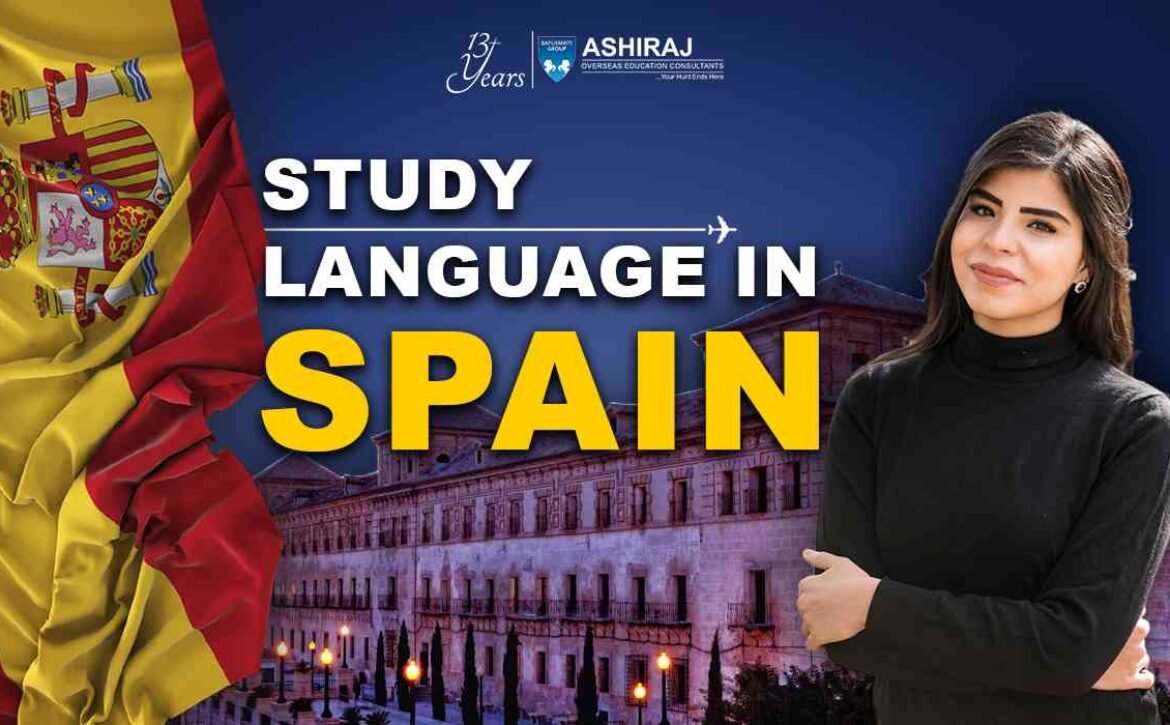
Language in Spain
The linguistic landscape of Spain is as diverse and captivating as its rich cultural heritage. Language in Spain embodies a mosaic of dialects, regional languages, and accents, reflecting the country’s complex history and vibrant societal tapestry. At its heart lies Spanish, or Castilian, the official language spoken by the majority of Spaniards. Rooted in Latin and influenced by Arabic, French, and other languages, Spanish serves as a unifying force amidst the nation’s linguistic diversity. However, beyond Spanish, Spain boasts a kaleidoscope of regional languages such as Catalan, Galician, and Basque, each with its own distinct identity and historical significance.
Exploring language in Spain unveils a fascinating journey through its regions, where linguistic diversity intertwines with cultural pride. From the romance of Andalusian Spanish to the lyrical tones of Catalan in Barcelona, language in Spain reflects the multifaceted nature of its society. Moreover, the preservation of regional languages like Basque and Galician underscores Spain’s commitment to nurturing its cultural heritage. Language in Spain isn’t merely a means of communication but a reflection of its people’s identity, history, and resilience. Through its linguistic tapestry, Spain invites exploration, celebrating the beauty and complexity of its diverse linguistic landscape.
Why Study Language in Spain?
- Cultural Immersion: Studying language in Spain offers an unparalleled opportunity for cultural immersion. By engaging with native speakers and living in Spanish-speaking communities, students can deepen their understanding of the language and culture simultaneously.
- Linguistic Diversity: Spain is home to a multitude of languages and dialects, making it an ideal destination for language study. From Castilian Spanish to regional languages like Catalan, Galician, and Basque, students can explore a diverse linguistic landscape.
- Historical Significance: Spain’s linguistic heritage is rich with historical significance. Through language study, students can uncover the roots of Spanish, a language influenced by Latin, Arabic, and other cultures throughout history.
- Professional Opportunities: Proficiency in Spanish opens doors to a wide range of professional opportunities. Whether in business, tourism, or diplomacy, Spanish language skills are highly valued in today’s globalized world.
- Personal Growth: Learning a language fosters personal growth by enhancing cognitive abilities, communication skills, and cultural sensitivity. Studying language in Spain offers a transformative experience that expands horizons and broadens perspectives.
- Adventure and Exploration: Beyond the classroom, studying language in Spain presents endless opportunities for adventure and exploration. From exploring historic cities to savoring culinary delights, students can immerse themselves in the vibrant tapestry of Spanish culture.
In conclusion, studying language in Spain provides a multifaceted experience that combines cultural immersion, linguistic diversity, historical significance, professional opportunities, personal growth, and adventure. It’s a journey that goes beyond language acquisition, offering students a deeper understanding of Spain’s rich heritage and vibrant society.
Top Universities to Study Language in Spain
University | QS World University Ranking 2023 | Type of University | Average Annual Fees | Programs Offered |
University of Barcelona | 145 | Public | $1,500 $3,000 | Spanish Language and Literature, Linguistics |
Autonomous University of Madrid | 185 | Public | $1,200 $2,500 | Spanish Language and Culture, Translation |
Complutense University of Madrid | 210 | Public | $1,300 $2,800 | Spanish Philology, Hispanic Studies |
University of Salamanca | 250 | Public | $1,000 $2,200 | Spanish Language Teaching, Hispanic Studies |
Pompeu Fabra University | 275 | Public | $1,400 $2,600 | Linguistics, Translation Studies, Spanish Literature |
Studying language in Spain can be a transformative experience, and choosing the right university is crucial for academic and personal growth. Here is a list of the top universities in Spain renowned for their language programs according to QS World University Rankings 2023. These universities offer a diverse range of programs in Spanish language, literature, linguistics, and translation, providing students with comprehensive knowledge and skills to excel in the field of Language in Spain. Whether you’re interested in delving into Spanish culture, mastering the intricacies of the language, or pursuing a career in translation, these universities provide exceptional academic resources and opportunities for growth.
Course Curriculum for Language in Spain
Language in Spain course curriculum typically covers a comprehensive range of topics related to the Spanish language, culture, and linguistics.
Core subjects often include Spanish grammar, vocabulary, pronunciation, and syntax, aimed at developing proficiency in written and spoken communication.
Cultural components delve into the history, literature, art, and traditions of Spain, providing insights into the socio-cultural context in which the language evolved.
Linguistics modules explore the structure and evolution of the Spanish language, including phonetics, morphology, syntax, and semantics.
Courses may also offer practical training in translation, interpretation, and language teaching methodologies, preparing students for diverse career paths.
Elective options allow students to tailor their studies according to their interests, with choices ranging from regional dialects to specialized topics like business Spanish or medical interpretation.
Immersive experiences such as study abroad programs, internships, and language exchanges offer opportunities for real-world application and cultural immersion.
Language in Spain course curriculum emphasizes not only linguistic proficiency but also cultural understanding and intercultural competence, equipping students with valuable skills for an increasingly globalized world.
Eligibility Criteria & Admission Requirements for MS in Language in Spain
- Language Proficiency: Applicants are typically required to demonstrate proficiency in Spanish through standardized tests such as IELTS or TOEFL. A minimum score of 6.5 in IELTS or 90 in TOEFL is commonly accepted.
- Academic Qualifications: Candidates must hold a bachelor’s degree or equivalent academic qualifications from a recognized institution. Transcripts and certificates demonstrating academic achievements may be required.
- Standardized Tests: Some programs may require applicants to submit scores from standardized tests such as GRE or GMAT. While not always mandatory for language programs, a competitive score can strengthen the application. A GRE score of 310 or above or a GMAT score of 600 or above is typically considered favorable.
- Passport & Student Visa: International students must possess a valid passport and obtain a student visa to study in Spain. Documentation including passport copies, visa application forms, and proof of financial means may be required.
- Academic Certificates: Applicants should provide certified copies of academic certificates, including transcripts and diplomas, to verify educational background and eligibility for the program.
- Work Experience: While not always mandatory, relevant work experience may enhance the application, particularly for advanced or specialized language programs. Applicants can submit resumes or CVs detailing their professional experience and achievements.
Standardized Test Scores
Test | Minimum Score |
IELTS | 6.5 |
TOEFL | 90 |
GRE | 310 |
GMAT | 600 |
Meeting the eligibility criteria for Language in Spain programs ensures that applicants possess the necessary language proficiency, academic background, and documentation to embark on a successful academic journey in Spain.
Documents Required for Studying Language in Spain
- Passport: A valid passport is essential for international students applying to language programs in Spain. It serves as proof of identity and nationality.
- Letters of Recommendation (LOR): Applicants are typically required to submit two letters of recommendation from academic or professional referees who can attest to their abilities and suitability for the program.
- Statement of Purpose (SOP): An SOP outlines the applicant’s academic background, career goals, reasons for choosing the program, and aspirations related to language in Spain.
- Curriculum Vitae (CV): A comprehensive CV provides an overview of the applicant’s educational qualifications, work experience, skills, achievements, and extracurricular activities.
- Official High School Transcripts: Transcripts from high school or secondary education institutions are required to verify academic performance and eligibility for language programs.
- Educational Certificates: Certified copies of educational certificates, including diplomas or degrees, are necessary to demonstrate academic qualifications.
- Work Experience Certificate: If applicable, a work experience certificate or letter from previous employers may be required to validate professional experience.
- Proof of Financial Resources: To obtain a student visa, applicants must provide proof of sufficient financial means to cover tuition fees, living expenses, and other costs associated with studying in Spain.
Ensuring the timely submission of these documents is essential for a smooth application process and enrollment in Language in Spain programs.
Admission Process for Language in Spain
- Research Programs: Explore language programs offered by universities in Spain, considering factors such as curriculum, faculty expertise, and location.
- Check Eligibility: Review the admission requirements, including language proficiency tests (IELTS, TOEFL), academic qualifications, and any standardized test scores (GRE, GMAT).
- Prepare Documents: Gather necessary documents such as passport, letters of recommendation, statement of purpose, CV, official transcripts, educational certificates, work experience certificates, and proof of financial resources.
- Submit Application: Complete the online application form provided by the university, ensuring accuracy and thoroughness in filling out personal and academic details.
- Pay Application Fee: Pay the required application fee as specified by the university. This fee may vary depending on the institution and program applied to.
- Wait for Notification: Await notification from the university regarding the status of your application. This may take several weeks, so patience is key.
- Accept Offer: If accepted, carefully review the offer letter and follow instructions to secure your place in the program. Pay any required deposits or confirmations.
- Obtain Student Visa: Upon acceptance, begin the process of obtaining a student visa for Spain. This typically involves submitting required documents to the Spanish consulate or embassy in your home country.
- Plan Arrival: Plan your arrival in Spain, including travel arrangements, accommodation, and any pre-departure preparations necessary for a smooth transition.
- Start Language Program: Once all administrative tasks are complete, begin your language program in Spain, ready to immerse yourself in the rich linguistic and cultural landscape of the country.
“Education is the most powerful weapon which you can use to change the world.”
Nelson Mandela
Cost of Language Course in Spain
- Tuition Fees: The cost of tuition for language programs in Spain varies depending on the university, program duration, and level of study. On average, tuition fees can range from $1,000 to $3,000 per year.
- Living Expenses: Accommodation, food, transportation, and other living expenses contribute to the overall cost of studying in Spain. Monthly living expenses can range from $700 to $1,200, depending on the city and lifestyle.
- Study Materials: Additional expenses may include textbooks, course materials, and supplies required for language courses. Budgeting for these materials is essential for academic success.
- Health Insurance: International students are often required to have health insurance coverage while studying in Spain. The cost of health insurance can vary, but budgeting around $300 to $500 per year is advisable.
- Visa and Residence Permit: Obtaining a student visa and residence permit may involve application fees and other expenses. Budgeting for visa-related costs is crucial for international students.
- Miscellaneous Expenses: Miscellaneous expenses such as travel, leisure activities, and personal items should also be considered when calculating the total cost of studying language in Spain.
Understanding the cost of studying language in Spain is essential for budgeting and financial planning. By accounting for tuition fees, living expenses, study materials, insurance, visa costs, and miscellaneous expenses, students can better prepare for their academic journey in Spain.
Scholarships for Language Courses in Spain
Scholarship Name | Amount | Application Deadline | Eligibility Criteria |
Spanish Government Scholarships | Full or partial | February | Open to international students pursuing undergraduate, master’s, and doctoral studies in Spanish universities. Applicants must demonstrate academic excellence and meet specific language requirements. |
Erasmus+ Scholarships | Varies | Varies | Available to students from EU/EEA countries for study, training, or volunteering opportunities in Spain. Applicants must be enrolled in a participating institution and meet academic and language criteria. |
Santander Scholarships | Up to $5,000 | May | Offered to students from Latin America, Spain, Portugal, and the UK. Eligible candidates must demonstrate academic merit, financial need, and a commitment to promoting cultural exchange. |
Fulbright Scholarships | Full funding | October | Available to U.S. citizens for research, study, or teaching assistantships in Spain. Applicants must possess a bachelor’s degree and proficiency in Spanish. |
DAAD Scholarships | Varies | Varies | Open to students from Germany for study or research in Spain. Applicants must demonstrate academic excellence and meet language requirements specified by the program. |
Scholarships for language in Spain provide financial support to international and domestic students pursuing language studies in Spanish universities. From government-funded initiatives to international exchange programs, these scholarships offer opportunities for students to enhance their language skills and immerse themselves in Spanish culture. Applicants are encouraged to carefully review eligibility criteria, application deadlines, and required documents before applying for these scholarships to support their Language in Spain endeavors.
Career Opportunities After Language in Spain
Job Profile | Average Salary |
Spanish Language Teacher | $25,000 $40,000 |
Translator/Interpreter | $30,000 $50,000 |
Tour Guide | $20,000 $35,000 |
International Relations Specialist | $40,000 $60,000 |
Content Writer | $25,000 $45,000 |
Language proficiency in Spanish opens up diverse career opportunities in Spain and beyond. Here are some popular job profiles and their average salaries for professionals with language skills in Spain. Spanish Language Teachers play a crucial role in education, earning competitive salaries ranging from $25,000 to $40,000 annually. Translators and Interpreters facilitate communication across languages, with average salaries ranging from $30,000 to $50,000. Tour Guides showcase Spain’s cultural heritage to visitors, earning approximately $20,000 to $35,000 per year. International Relations Specialists navigate diplomatic relations, earning salaries averaging between $40,000 to $60,000. Content Writers create engaging content in Spanish, with salaries ranging from $25,000 to $45,000. With fluency in Spanish, professionals can explore rewarding career paths in various industries, contributing to their success in the Language in Spain field.
Frequently Asked Questions About Language in Spain
The most commonly spoken language in Spain is Spanish, also known as Castilian. However, there are also several regional languages spoken, including Catalan, Galician, and Basque.
While fluency in Spanish is not always required, having a basic understanding of the language can greatly enhance your experience while studying in Spain.
Yes, many universities in Spain offer language courses taught in English, particularly at the graduate level. However, proficiency in Spanish may still be beneficial for daily life in Spain.
Yes, several universities in Catalonia, Galicia, and the Basque Country offer courses in Catalan, Galician, and Basque languages, respectively.
Yes, there are various scholarships available for studying languages in Spain, including government-funded scholarships, university-specific scholarships, and international exchange programs.
Immersing yourself in Spanish-speaking environments, practicing with native speakers, and taking language courses are effective ways to improve your Spanish language skills while studying in Spain.
Yes, international students with a valid student visa are typically allowed to work part-time in Spain. However, there may be restrictions on the number of hours you can work.
The time it takes to become fluent in Spanish varies depending on factors such as your starting proficiency, immersion in Spanish-speaking environments, and dedication to language study. On average, it may take several months to a few years to achieve fluency.
Studying language in Spain offers numerous cultural experiences, including exploring historic cities, participating in local festivals, enjoying traditional cuisine, and interacting with diverse communities.
Yes, many universities in Spain offer language exchange programs where students can practice their language skills with native speakers in exchange for helping them learn their native language.




